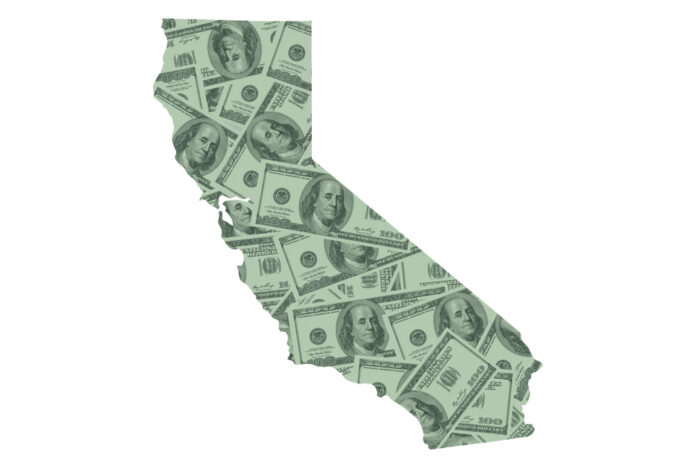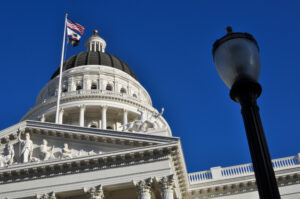
The Liberals in Sacramento handed $10 billion in direct contributions to supporters last month. Don’t call it bribery.
The state Legislative Analyst’s Office (LAO) announced this week that, barring a recession, the state government now anticipates a $25 billion shortfall for the following fiscal year.
Where’s Cali Going To Get the Money?
Lower earnings are anticipated to result in a $25 billion budget window shortfall. In the forecasted years that follow, annual losses drop from $17 billion to $8 billion.
Unfortunately, these projections do not account for a recession.
Politicians and the Federal Reserve have a flawless record of never forecasting a recession until it is abundantly clear that one is occurring.
The precise route is uncertain, but the objective is not. Pre-recession budget projections are always unduly optimistic.
It’s believed the decline will be greater and more rapid than the state anticipates.
The highly progressive nature of California’s income tax renders the state largely dependent on income and particularly the capital gains of wealthy individuals. The highest 0.5% of taxpayers are responsible for 40% of state income tax.
As a result of the Federal Reserve’s lax financial policies, tax revenue increased during the pandemic. Many tech employees sold out their stock options.
The Democrats who run Sacramento enjoy the revenue highs but always need another fix. The lesson for other states is not to get hooked in the first place.https://t.co/jgg5YZnPLm
— Wall Street Journal Opinion (@WSJopinion) November 21, 2022
Why Does California Have the Budget Blues?
This fiscal year’s budget surplus was $97 billion, up from $76 billion a year ago, due to soaring capital profits and a flood of government pandemic relief funds.
As always, Democrats spent in an endless manner. Since the Fed started tightening more vigorously this year, however, stock prices have plummeted, especially for high-flying IT firms. Businesses in Silicon Valley are reducing their workforce.
The state budget inspector now predicts a $25 billion deficit for the upcoming fiscal year, which it argues downplays the underlying budget crisis in inflation-adjusted terms because it did not account for inflation in the majority of spending programs.
The extra spending would be required if the Legislature wants to maintain its existing standard of service according to the LAO.
MyPOV: they keep giving hard earned tax payer dollars to non citizens.
The Democrats who run Sacramento enjoy the revenue highs but always need another fix. The lesson for other states is not to get hooked in the first place. https://t.co/fQP95UggfM via @WSJ
— @awscloud #reInvent R “Ray” Wang 王瑞光 #1A (@rwang0) November 20, 2022
This is a fair inference. Government unions and liberal special interests scream “cutting” anytime spending growth is slower than inflation growth.
In addition, the LAO believes that the Legislature enforces no specific legislation during the term. How likely is it, given that Governor Gavin Newsom is running for president in 2024?
The LAO prediction doesn’t really account for a hypothetical U.S. recession, in which case “earnings might be $30 billion to $50 billion beneath our income outlook in the budgetary window,” the researcher cautions.
Therefore, the state may face a $75 billion budget shortfall next year.
Other States Take Note
Progressives will then call for a tax increase on the wealthy, as Democrats did in 2012. The Democrats in charge in Sacramento appreciate the income increases but are perpetually in need of a fix. The message for other states is to avoid being entangled.
















